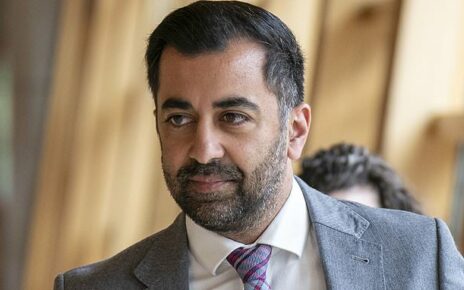Save articles for later
Add articles to your saved list and come back to them any time.
The news
Palestinian medics said they are increasingly afraid for the lives of hundreds of patients and medical staff at Gaza’s biggest hospital, cut off from all links to the outside world for more than a day after Israeli forces entered.
The body of Yehudit Weiss, one of around 240 hostages taken by Hamas gunmen when they stormed into southern Israel on October 7 was recovered by troops in a building near Al Shifa hospital in Gaza, Israel’s military said on Thursday.
Israeli soldiers in the grounds of Al Shifa hospital in Gaza City. Credit: IDF via AP
It said the body had been identified by forensic examiners and the family had been informed.
Israel said its commandos were still searching through Al Shifa hospital overnight, more than a day after they entered its grounds as part of an offensive Israel says aims to wipe out Hamas militants in the Palestinian enclave.
“The operation is shaped by our understanding that there is well-hidden terrorist infrastructure in the complex,” an Israeli official said, declining to be identified.
Israel has so far released pictures of what it says were rifles and flak jackets found on the premises, but no evidence of a vast underground Hamas command headquarters it said was operating in tunnels beneath it.
Israeli forces brought a BBC film crew into the hospital overnight and showed it some rifles they said were found there, but the broadcaster said Israeli escorts had barred its team from interacting with patients or staff.
Gaza’s health ministry said Israeli soldiers had removed bodies from the hospital grounds and destroyed cars parked there, but they were not letting staff or patients leave.
Ministry spokesman Ashraf Al-Qidra said there was no water, food or baby milk in Shifa, which was packed with 650 patients and about 7,000 people displaced by weeks of Israeli air strikes and artillery bombardments.
Palestinians in parts of southern Gaza said they received evacuation notice, in a signal that Israel’s ground invasion is about to expand in the south.
As the war rages in Gaza, a bitter battle for public opinion has flared in the United States, with angry rallies on many college campuses and disruptive protests at prominent venues in several major cities.
Elsewhere in the conflict:
- Police and protesters clashed outside Democratic National Committee headquarters on Wednesday night during a demonstration for a cease-fire in the war between Israel and Hamas, the latest reflection of boiling tensions over the bloody conflict.
- All communications services are down across the Gaza Strip due to lack of fuel, Palestinian telecoms provider Paltel said Thursday, cutting off the besieged territory from the outside world.
- Saudi Arabia condemned Israel’s raid on Shifa Hospital in Gaza City, calling it a “blatant violation of international law” in a statement Thursday from the Foreign Ministry. It also condemned what it said was shelling near another hospital and called on international bodies to hold Israel accountable.
- Lebanon’s Hezbollah militant group said it fired at Israel in four cross-border attacks Thursday. Israel said it had identified launches from Lebanon toward two Israeli military posts near Yiftah and Metula. Farming communities in the north were evacuated.
- Another 60 Norwegian citizens will be able to leave Gaza on Thursday, the Foreign Ministry in Norway said, with Scandinavian Prime Minister Jonas Gahr Støre saying that they have received information from relatives that a citizen from the Nordic country was killed in Gaza.
- The United States will not share any Israeli intelligence or elaborate on its own intelligence assessment that Hamas used Gaza’s Al Shifa hospital as a command center and possibly as a storage facility, White House spokesman John Kirby said.
- Hundreds of Israelis, including friends and family members of some 240 people held hostage by Hamas in the Gaza Strip marched toward Jerusalem on Thursday. The walk aims to pressure the authorities to secure the release of the hostages.
- In the central Gaza city of Deir al-Balah, an outdoor funeral service was held for 28 Palestinians killed in overnight bombing, their bodies pulled from the rubble of destroyed buildings. Some of the mourners crouched over bodies wrapped in sheets of white plastic.
- Shooters opened fire Thursday at a checkpoint south of Jerusalem, wounding at least four people, one critically, Israeli police said. The attackers arrived by car at the checkpoint on the main road connecting Jewish settlements in the West Bank and southern Jerusalem and opened fire at Israelis, police said, and at least three shooters were killed by security guards at the crossing.
The human toll
Hamas militants burst through the fence around Gaza on October 7 in an assault that Israel says killed 1200 people in the deadliest day in its history. Around 240 hostages were taken back to Gaza.
Israel has pounded Gaza with air strikes and cut off food and fuel. Gaza health authorities deemed reliable by the United Nations say more than 11,000 people have been confirmed killed, more than 40 per cent of them children.
The response
- Human Rights Watch UN Director Louis Charbonneau cautioned that hospitals have special protections under international humanitarian law and: “Hospitals only lose those protections if it can be shown that harmful acts have been carried out from the premises…The Israeli government hasn’t provided any evidence of that.”
- Kenneth Roth, a former head of Human Rights Watch, said: “Israel will have to come up with a lot more than a handful of ‘grab and go’ rifles to justify shutting down northern Gaza’s hospitals with its enormous cost for a civilian population with urgent medical needs.”
- The Director of Al Shifa Complex, Muhammad Abu Salamiya said the hospital was “under occupation authority for 48 hours and every minute that passes” more patients will die. “We are waiting for slow death…Medical teams, patients and displaced people are fighting death due to the lack of any basic life necessities.”
- WFP Executive Director Cindy McCain said: “With winter fast approaching, unsafe and overcrowded shelters, and the lack of clean water, civilians are facing the immediate possibility of starvation.”
- US National Security Council spokesman John Kirby said, “What we have learned through our own experiences, that that military and other means you can absolutely have a significant impact on terrorist groups ability to resource itself, to train fighters, to recruit fighters, to plan to execute attacks. And look at the shadow of itself that ISIS is right now, look at the shadow of itself al-Qaeda is right now…It doesn’t mean that the ideology withers away and die,” Kirby added.
More coverage of the Hamas-Israel conflict
- Hamas had bigger plans on October 7: Intelligence about Hamas’ motivations reveals an intention to strike a blow of historic proportions and provoke an overwhelming Israeli response.
- Escape from chaos: An Australian father faced heartbreaking dilemma – whether to flee Gaza to his children, or stay with his wife.
- Open letters: Mass resignations, boardroom turmoil and angry donors are some of the ways the Israel-Hamas war is filtering down into Australia’s high-powered arts world.
- Gaza’s youth: One of the cruelest ironies of war is that they are never started by children, yet it is children who suffer the most.
Get a note directly from our foreign correspondents on what’s making headlines around the world. Sign up for our weekly What in the World newsletter.
Reuters, AP
Most Viewed in World
From our partners
Source: Read Full Article



